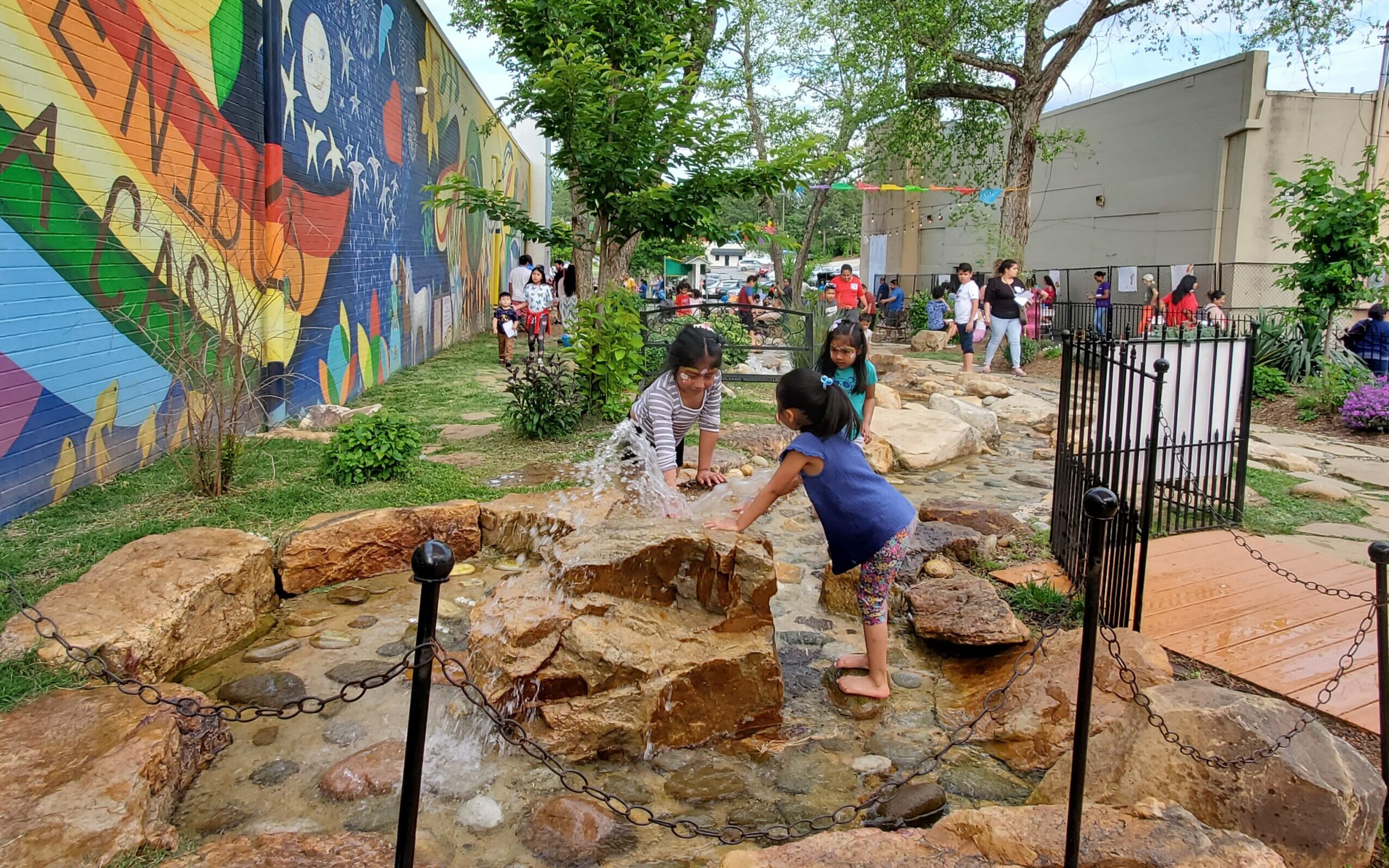
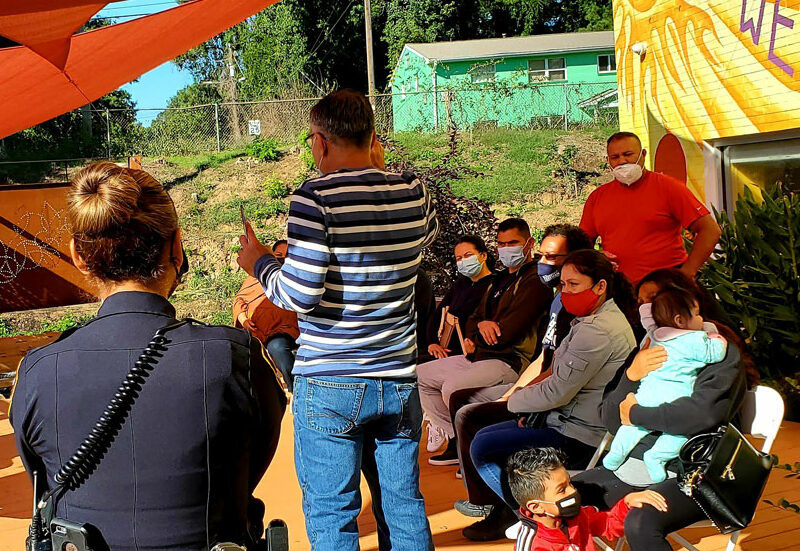
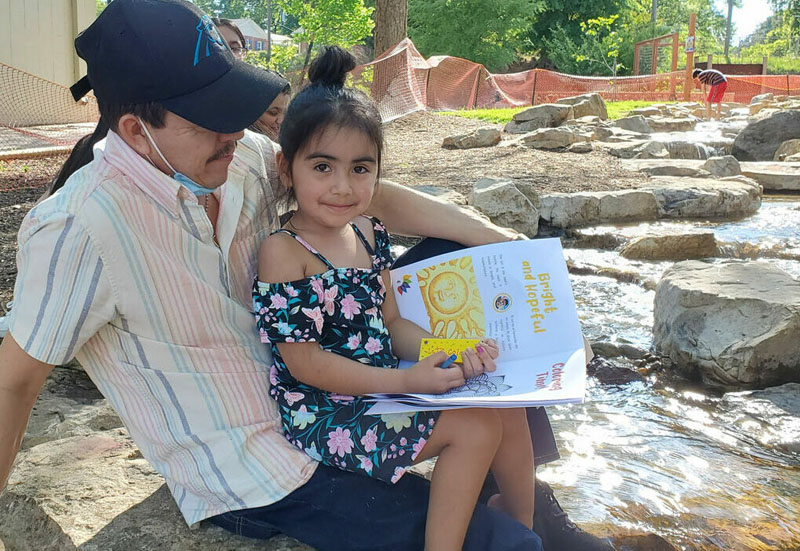
This 2024 gives us the opportunity to reflect on what we have accomplished in the past two decades and what we hope and dream of in the future. What lessons have we learned? What is our legacy for future generations?
This is the year that marks 20 years of El Futuro’s services to the Latino community and two decades of providing mental health services and substance use treatment to resilient and amazing Latino clients.
In addition to the clinical work achieved since 2004, El Futuro has grown to expand its healing capabilities outside the clinic walls through programs and a focus on community engagement efforts that foster cultural pride and belonging. El Futuro has since launched initiatives like the Community Health Workers program, Peer Support Specialists program, and LAYA (Latino Adolescent and Young Adults), a community-led program for Latino youth, adolescents, and young adults. El Futuro continues advocacy efforts and policy formulation to address statewide Immigrant Mental Health needs and services, and we are grateful for the continued collaboration and partnerships with the agencies that share our goals and dreams.
“20 years ago, there was a lot of fear in the community, so they preferred to hide what was happening, try to ignore it, and not draw attention to themselves by trying to seek help. Trust is what allowed us to get closer, and that was where we saw a real change. Today, we have taken mental health to another level because it is not just about providing a service but rather elevating everything we do in a holistic, inclusive, and culturally responsible way. We want the transformation to continue happening in the community, for El Futuro to be a place where they feel welcome, connected to their roots, a place where people feel grounded in their new home, less afraid and more empowered.”, said Luke Smith, El Futuro’s Executive Director and Psychiatrist.
We are ready for more! More healing, more health, more assistance and support to our clients, more connections, stronger families, more children enjoying their classes and growing up in a safe environment, more mothers smiling and feeling supported, more teens being mental health ambassadors, a stronger and healthier Latino community.
To our clients, donors and funders, Board members, colleagues/staff members, collaborators, partner organizations, and everyone who has embarked on this journey with us, we want to extend our gratitude and admiration. Your support and trust are the keys to our success.
Cheers to 20 years! We look forward to celebrating more decades of walking alongside you.

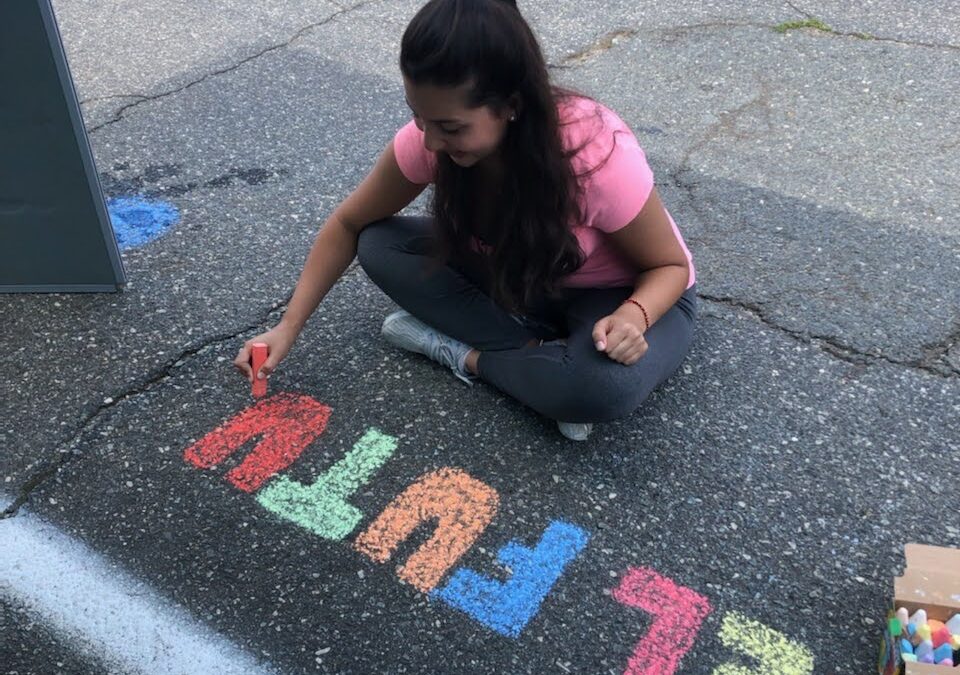
 Alvely Alcántara, LCSW
Alvely Alcántara, LCSW Rossy C. Garcia, MEd
Rossy C. Garcia, MEd  Katy Sims, MD
Katy Sims, MD 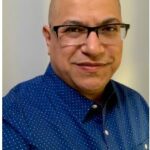 Everardo Aviles, LCSW, LCAS (Eve)
Everardo Aviles, LCSW, LCAS (Eve) As a medical anthropologist and social work researcher, Dr. Gulbas’ research embodies interdisciplinarity through the integration of applied theories of health and human development with qualitative and ethnographic methodologies. Her work seeks to understand how people—children, families, and providers—navigate complex sociocultural landscapes in the pursuit of mental health. Most of her work, to date, focuses attention on developing more robust interpretations of suicide risk. With funding from the National Institutes of Mental Health, this body of research has contributed to advancements in theoretical and empirical knowledge of the broader contexts within which youth suicide risk is situated.
As a medical anthropologist and social work researcher, Dr. Gulbas’ research embodies interdisciplinarity through the integration of applied theories of health and human development with qualitative and ethnographic methodologies. Her work seeks to understand how people—children, families, and providers—navigate complex sociocultural landscapes in the pursuit of mental health. Most of her work, to date, focuses attention on developing more robust interpretations of suicide risk. With funding from the National Institutes of Mental Health, this body of research has contributed to advancements in theoretical and empirical knowledge of the broader contexts within which youth suicide risk is situated.  R. Gabriela Barajas-Gonzalez is a developmental psychologist and an assistant professor of Population Health at NYU Grossman School of Medicine. Dr. Barajas-Gonzalez is the principal investigator of a study that examines the impact of immigration-related threat and stress on school communities. She earned a PhD in developmental psychology from Columbia University and hold a BA in human biology from Stanford University. Dr. Barajas-Gonzalez is the daughter of Mexican immigrants and a first gen college student.
R. Gabriela Barajas-Gonzalez is a developmental psychologist and an assistant professor of Population Health at NYU Grossman School of Medicine. Dr. Barajas-Gonzalez is the principal investigator of a study that examines the impact of immigration-related threat and stress on school communities. She earned a PhD in developmental psychology from Columbia University and hold a BA in human biology from Stanford University. Dr. Barajas-Gonzalez is the daughter of Mexican immigrants and a first gen college student.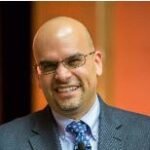 Dr. Parra-Cardona is an Associate Professor in the Steve Hicks School of Social Work (SHSSW) at the University of Texas at Austin. At the SHSSW, he serves as Coordinator for Mexico and Latin American initiatives. He also serves as Area Director for Research at the UT Austin Latino Research Institute. Dr. Parra-Cardona’s program of research is focused on the cultural adaptation of evidence-based parenting interventions for low-income Latinx populations in the US and Latin America.
Dr. Parra-Cardona is an Associate Professor in the Steve Hicks School of Social Work (SHSSW) at the University of Texas at Austin. At the SHSSW, he serves as Coordinator for Mexico and Latin American initiatives. He also serves as Area Director for Research at the UT Austin Latino Research Institute. Dr. Parra-Cardona’s program of research is focused on the cultural adaptation of evidence-based parenting interventions for low-income Latinx populations in the US and Latin America. Bianka Reese, PhD, MSPH is a research scientist and program evaluator specializing in adolescent and young adult sexual and reproductive health. Her previous research in the experiences of Latinx LGBTQ+ youth stems from her work as the Research and Evaluation Manager at SHIFT NC (Sexual Initiatives For Teens), where she led largescale evaluations of multilevel, community-based sexual health promotion initiatives and research projects aimed at elevating the voices of diverse youth in North Carolina. Dr. Reese is currently the Senior Research Strategist at Creative Research Solutions, LLC, an award-winning national evaluation, research, and assessment firm.
Bianka Reese, PhD, MSPH is a research scientist and program evaluator specializing in adolescent and young adult sexual and reproductive health. Her previous research in the experiences of Latinx LGBTQ+ youth stems from her work as the Research and Evaluation Manager at SHIFT NC (Sexual Initiatives For Teens), where she led largescale evaluations of multilevel, community-based sexual health promotion initiatives and research projects aimed at elevating the voices of diverse youth in North Carolina. Dr. Reese is currently the Senior Research Strategist at Creative Research Solutions, LLC, an award-winning national evaluation, research, and assessment firm. Tania Connaughton-Espino, MPH is an independent researcher focused on adolescent and young adult sexual and reproductive health. Her interest in the experiences of Latinx LGBTQ+ youth stems from her previous work with SHIFT NC (Sexual Initiatives For Teens), where she led the training and evaluation department, conducted capacity-building workshops for youth serving professionals including on the topic of how to be more affirming of LGBTQ youth, and from her extensive experience working with the Latinx population in NC.
Tania Connaughton-Espino, MPH is an independent researcher focused on adolescent and young adult sexual and reproductive health. Her interest in the experiences of Latinx LGBTQ+ youth stems from her previous work with SHIFT NC (Sexual Initiatives For Teens), where she led the training and evaluation department, conducted capacity-building workshops for youth serving professionals including on the topic of how to be more affirming of LGBTQ youth, and from her extensive experience working with the Latinx population in NC. Maru Gonzalez, EdD is an Assistant Professor and Youth Development Specialist in the Department of Agricultural and Human Sciences at North Carolina State University. Her areas of inquiry include youth development with a focus on activism, social justice, and the experiences of LGBTQ+ young people across familial, school, and community contexts.
Maru Gonzalez, EdD is an Assistant Professor and Youth Development Specialist in the Department of Agricultural and Human Sciences at North Carolina State University. Her areas of inquiry include youth development with a focus on activism, social justice, and the experiences of LGBTQ+ young people across familial, school, and community contexts.  Nayeli Y. Chavez-Dueñas, PhD
Nayeli Y. Chavez-Dueñas, PhD Hector Y. Adames, PsyD
Hector Y. Adames, PsyD